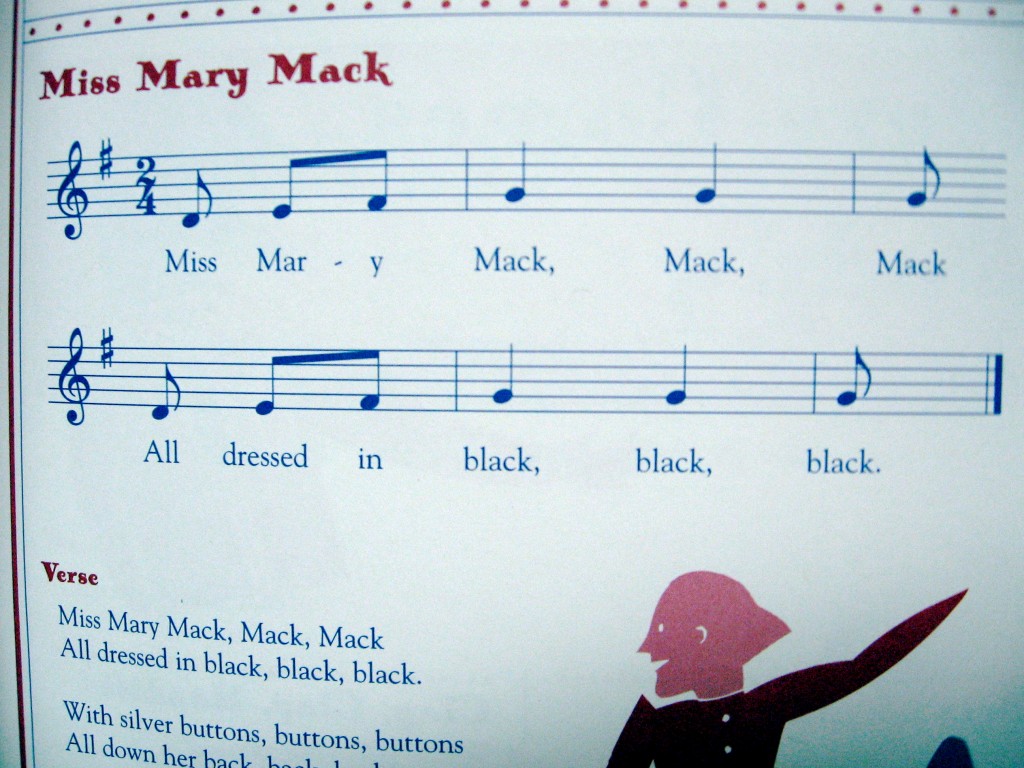East Coast Folklore Childrens Hand Game
Miss Mary Mack
Miss Mary Mack, Mack, Mack
All dressed in black, black, black.
With silver buttons, buttons, buttons
All down her back, back, back.
She asked her mother, mother, mother
For fifty cents, cents, cents
To see the elephants, elephants, elephants
Jump over the fence, fence, fence.
They jumped so high, high, high
They reached the sky, sky, sky
And they didn’t come back, back, back
‘Til the 4th of July, ly, ly!
Alicia learned this rhyme when she was in elementary school from her group of friends at school when they were playing during lunchtime. Following the melody shown above, she and her friends had matching hand motions to each line of the song. They would repeat the motions for every single line, and the melody would repeat for every line as well. She stated that this rhyme was the most popular one in New Jersey, and that all of her friends knew it. She was quite surprised when I told her that I had never heard of it. Thus, she called it an east coast thing. When asked what she thought it meant, she said that she always pictured the rhyme to be describing a circus. She believes that it is interesting to see young kids play such games because it is completely different from what adults would do. She states that elementary school was a time of no worries and blatant joy, and she misses it.
I believe this rhyme clearly illustrates the frivolous minds of children. I also had rhymes like this when I was younger, but I have never heard of this particular one. I agree with Alicia when she says that there were pretty much no worries in elementary school. Children would make up games such as the one above, or hear it somewhere and sing it everywhere. Because children in elementary school are barely learning a language, it is common to find rhymes that make no literal sense, but have words that rhyme quite nicely with each other. Children are a goldmine for folklore for this reason. This childrens tapping rhyme also appears in The Book of Tapping and Clapping by John M. Feirabend.[1] The fact that theres variation further constitutes this as folklore.
[1] Annotation: Feierabend, John M., comp. The Book of Tapping and Clapping. Chicago: GIA Publications, Inc., 2000. 35.

